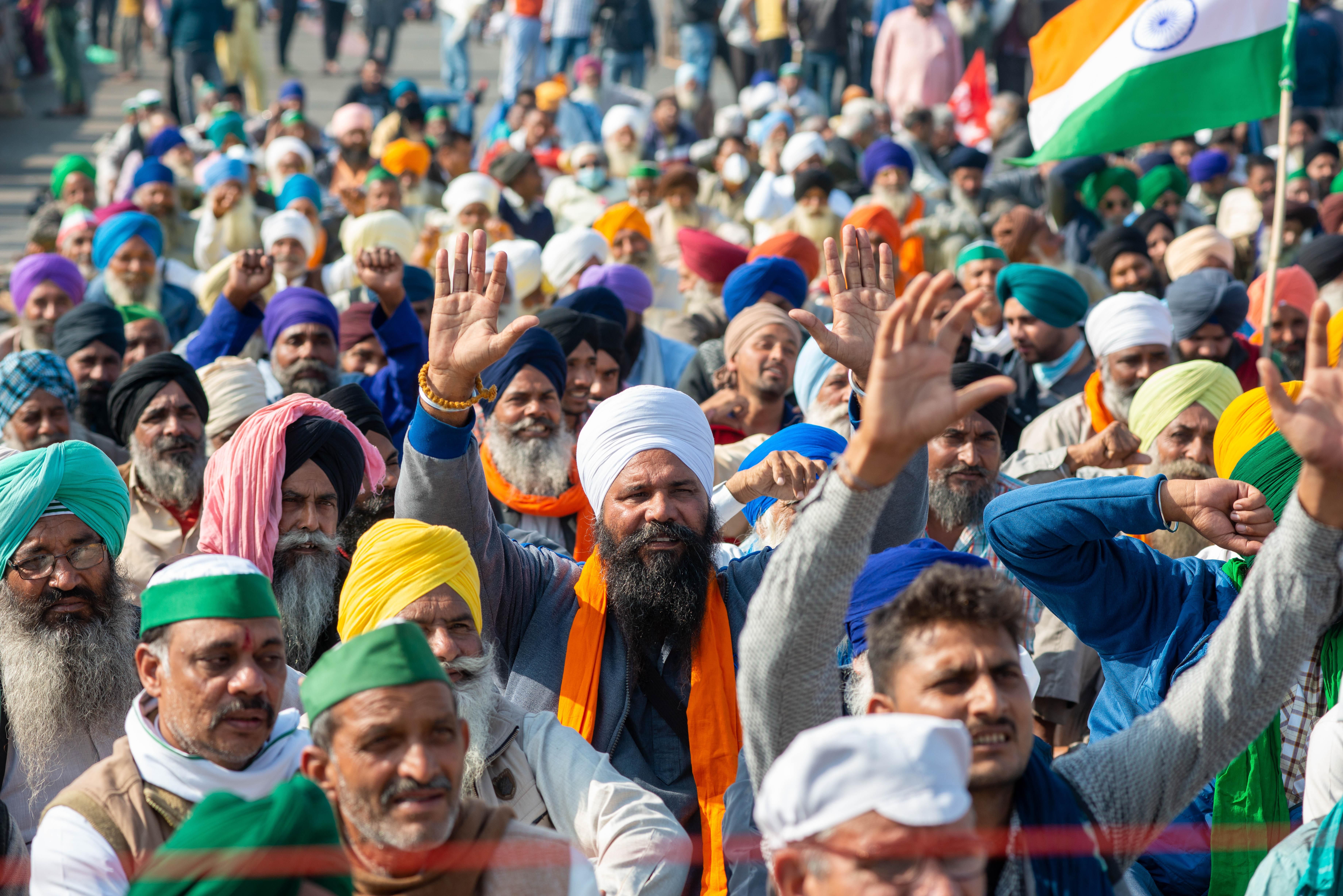What We're Watching: Indian farmers' hunger strike, Brexit finale, Russian cyber attack
Indian farmers' hunger strike: After three weeks of protests over legislation that farmers say will threaten their livelihoods, Indian agriculture workers upped the ante on Monday when they began a day-long hunger strike that they hope will pressure the government to scrap the new laws. Prime Minister Narendra Modi's government says that three reforms passed in September amid the pandemic are meant to liberalize the country's robust agriculture sector (which accounts for 15 percent of India's GDP) by lifting requirements that farmers sell their harvests directly to state warehouses — which guarantee a set minimum price in return. Many agricultural workers, a group that includes about half the country's 1.4 billion people, fear that the laws will benefit big corporations that can increase their market-share by driving down prices and forcing smaller farmers out of business. Protests outside New Delhi continue to intensify, and some demonstrators have blocked highways leading into the capital and set up sprawling tent cities to wait out the political crisis. Modi's government has offered amendments to the legislation, but the demonstrations — and the political stakes — continue to grow.
Brexit endgame: Brits and Europeans are still talking and, believe it or not, that alone is significant. UK Prime Minister Boris Johnson has signaled at various times that he's prepared to walk away from the bargaining table without an 11th-hour trade agreement with the EU, and the rest of us are left to wonder whether he's bluffing. The European Commission appears impressed enough with Johnson's patience and stubbornness to offer some flexibility on a key sticking point: the so-called Level Playing Field, the willingness of the UK to align its labor, environmental, tax and competition rules with those used in Europe to ensure the UK can't have both broad access to EU markets and a competitive advantage over EU companies. Will this European move be enough? The clock is now ticking thunderously: In just 16 days, the UK will finally leave the European Union with or without a deal.
A major Russian hack: US government officials said Sunday that hackers (likely from Russia) gained access to government email accounts at agencies including the US Commerce and Treasury departments, as well as private companies, as part of a hacking scheme that could date as far back as the spring. Details remain sketchy, but reports indicate that FireEye, a computer security firm that counts the US Department of Homeland Security as one of its clients, first raised the alarm about the breach after its own systems were infiltrated. A software company called SolarWinds, whose products are used by 300,000 global organizations including the Pentagon, State and Justice departments was also breached. Analysts say it could be the most sophisticated hack by a foreign government on US infrastructure in more than five years. While it's unclear what, if anything, the Russian hackers extracted — and whether highly-classified information has been stolen — US government agencies went into crisis mode as they continued to investigate.
